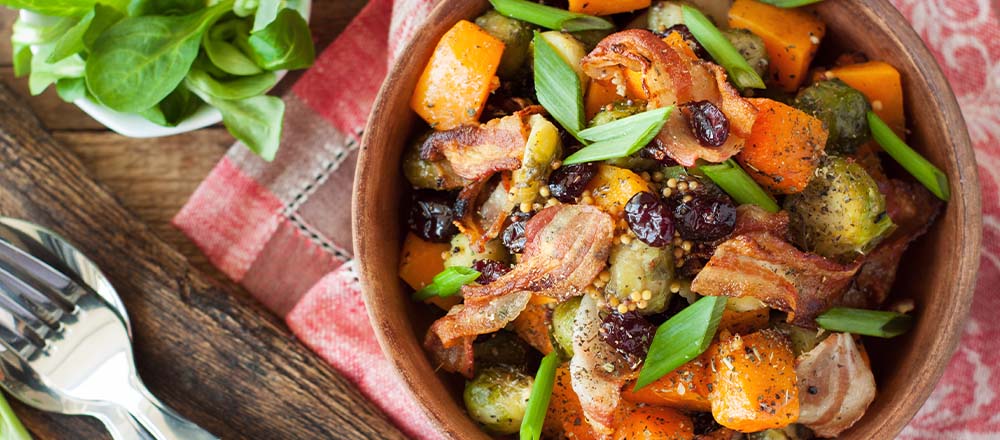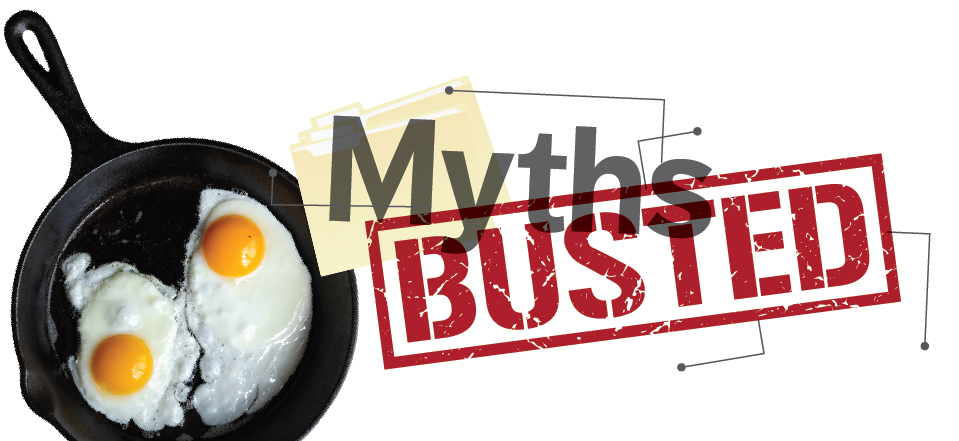IBS: It's Not Your Father's High-Fiber Cereal That Brings Relief
April 28, 2021By: Kelsey Able
Categories: Live Healthy, Nutrition, Prevention

Your dad may have touted the digestive benefits of his favorite high-fiber bran cereal, but all fiber isn’t alike. It’s known for relieving irritable bowel syndrome, but fiber comes in two forms – insoluble and soluble. Your IBS prefers the latter.
What Is IBS
A common disorder, IBS affects the large and small intestines. Signs and symptoms include abdominal cramping, bloating and a change in bowel habits. Some people have diarrhea or constipation. Some people have both. Learn more by watching Dr. Able’s Lunch & Learn on “IBS: What Can You Eat.”
Fiber Primer
The two types of dietary fiber have different roles in your gut:
- Insoluble fiber does not dissolve in water.
- Role: Increases bulk to speed the passage of food through your colon
- Foods: Nuts, wheat bran, whole wheat flour and vegetables
- Soluble fiber dissolves in water.
- Role: Softens stools for easier elimination
- Foods: Apples, avocados, barley, beans, Brussels sprouts, carrots, citrus fruits, flax and sunflower seeds, oats, peas and sweet potatoes Note: It’s also in psyllium, a form of fiber made from the seed husks of the plantago ovata plant (you’ll find psyllium in over-the-counter fiber supplements).
Insoluble Fiber Versus Soluble Fiber
Several studies confirm soluble fiber is better at relieving IBS symptoms. Researchers looked at fiber therapy in IBS in a review of 14 studies with more than 900 patients. They found soluble fiber effective in treating IBS. Bran did not appear to provide benefit.
The American College of Gastroenterology agrees. The ACG notes soluble fiber provides some relief of IBS, but be wary of insoluble fiber. It may worsen IBS symptoms.
IBS Relief
When you need relief, over-the-counter medicine options can make it feel as if there is no end in sight. Don’t get overwhelmed by the fiber aisle. Read the labels. Look for something with psyllium as the main ingredient.
We expose ourselves to stressful situations. We eat foods we shouldn’t. It’s OK to have tummy trouble now and then. If it becomes a chronic problem, then your primary care physician will want to know about it. Your PCP may refer you to a gastroenterologist.
Explore More
Boot the Bloat
The Scoop on Poop
When Stomach Troubles Turn Serious



